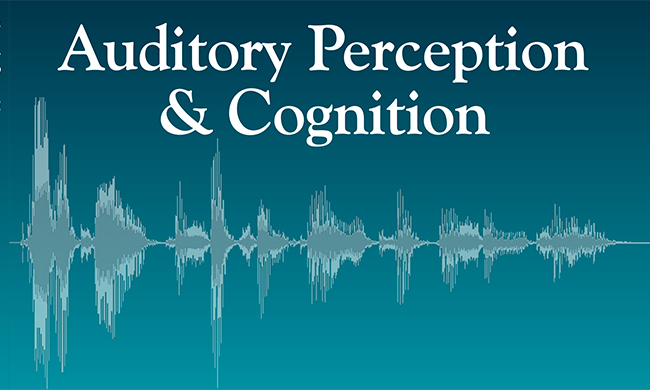New auditory research journal launched
NewsBy: Trudy Horsting
Creative Services Student Writer

Michael Hall, JMU psychology professor, says, “We often think in terms of- this is the way the cards were dealt, this is the system that exists. I’m of the mind that if the system isn’t working right, you can do something to change it.” After seeing a need in his field for a journal with a particular auditory focus, Hall and colleague Mike Russell from Washburn University set about to make it happen.
Hall attends the annual Psychonomic Society conference every year, which is the largest experimental psychology conference in North America. For the last seven years he’s chaired the satellite meeting for auditory researchers entitled the Auditory Perception, Cognition & Action Meeting (APCAM). It was while talking with fellow researchers at this meeting that he grew concerned with the visible decline of auditory research within general perception and cognition journals. He says, “In the flagship journals that were general perceptual outlets, the auditory content went from being almost half of the material ten years before to suddenly being one article per issue.” The number of auditory researchers on editorial boards was decreasing at the same pace. Hall says, “The motivating question was what was happening to auditory researchers like myself who are interested in similar stages of information processing?” A group of panelists at the conference recognized that the auditory articles were disappearing from general perceptual outlets and were moving to more specialized auditory outlets focused on either speech/language or music or acoustics. Hall explains, “We viewed this as bad for the field because it hinders cross-talk between scientists.”
Hall and Co-editor Russell decided to solve the problem by creating a journal specific in its auditory focus, but general in terms of levels of processing in the brain. He says, “I didn’t know whether it was going to work out exactly the way I wanted it to, but I did know that I’d feel a lot better at the end of it if I gave it a shot.” He began by surveying individuals who attended the satellite meeting to assess interest and then developed a proposal which included the journal’s objectives, who it would serve, budget requirements, and a potential editorial board. After the publisher, Taylor & Francis, approved the proposal, it moved on to an academic review. The feedback the proposal received was very positive and the journal’s launch was officially announced at APCAM 2017, then promoted during the Psychonomic Society meeting.in Vancouver.
The journal is called Auditory Perception and Cognition, named after the satellite meeting it grew out of, and researchers from around the world are invited to submit. Hall says, “The hope is that it will serve the scientific community by allowing people who otherwise wouldn’t have a chance to read in this subject area to form new ideas and think differently. When I’m in a position to retire, and I look back to see how the journal is doing- if it’s getting people to improve their research by seeing what other researchers are working on and allowing them to think about things in innovative ways, then that’s success. And I’m very hopeful.”
Hall reflects, “Three and a half years of work on this project is a long time. But where science is concerned, 3 years is nothing.” He explains that when there’s a need to be met, the most difficult step to take is always the first one. But if you want something done, you simply have to believe that you possess the capability to do it. Hall says, “I want to encourage students to think that same way.” He explains, “Everyone is full of ideas, it’s just a matter of implementing them.”
Read more information about the journal Auditory Perception & Cognition

